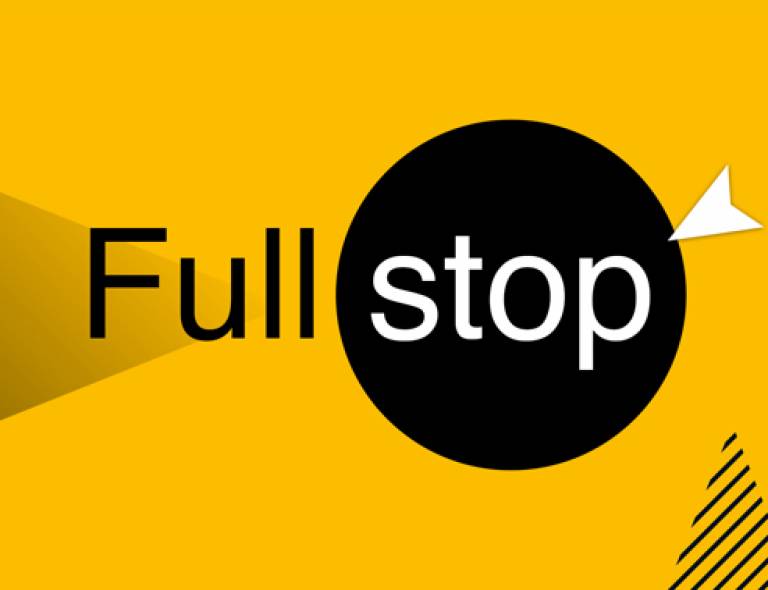UCL publishes annual report on Bullying, Harassment and Sexual Misconduct
26 October 2020
UCL is today publishing its first annual report into bullying, harassment and sexual misconduct following the launch of Report + Support – which has been in place since February 2019.

Report + Support enables students and staff to report ‘anonymously’ or ‘contact an advisor’ to find out their options for support and resolution.
The publication of the annual report is part of UCL’s part of the commitment to improve transparency and build trust and confidence in reporting.
UCL is clear that these behaviours have always been unacceptable. The Report + Support reporting system can aid resolution and support. The university has also put in place a number of measures around prevention of misconduct such as the introduction of UCL’s Personal Relationship Policy in November 2020.
Headline findings:
- A total of 376 reports, 63.3% reports were from staff, 23.4% from post-graduate Students, 11.4% from undergraduate Students and 0.6% from third party staff.
- 58.7 % reports related to bullying, 31.5% related to harassment and 9.6% reports related to sexual misconduct.
- 65.4% of reports made were anonymous, and 34.6% of students and staff had contacted an advisor. Anonymous reports have decreased 6% since the Six Month Insights Report.
Key reasons for reporting anonymously:
- I am concerned about the impact on current or future career, 17.1%
- Nothing would be done if I made a complaint, 15%
- I’m worried about being called a trouble maker, 12.2%
- I’m worried that the perpetrator would retaliate, 9.2%
Cases:
- There were 24 formal student cases within the year. Outcomes varied from no further action, referred to police, suspension.
- There have been 37 formal cases raised by staff during the time period. Outcomes ranged from no further action to final written warning and dismissal.
Measures taken around bullying, harassment and sexual misconduct:
- UCL has launched an online reporting tool for students and staff to report issues of unacceptable behaviour; ‘Report + Support’ - which focuses on cultural and behaviour change.
- The tool is being accompanied by UCL’s first institution-wide campaign called ‘Full Stop’. This focuses on how all members of the UCL community can play an active role in shaping a welcoming and inclusive environment for students and staff. The campaign provides helpful resources and include calls to action at an individual, departmental/faculty and institutional level. Part of this requires that we no longer excuse poor behaviour, or minimise the experiences of those affected.
- Approved and implemented the new Prevention of Bullying, Harassment and Sexual Misconduct Policy, and revised the Personal Relationships Policy which prohibits relationships between students and staff where there is direct supervision.
- Engaged staff and PhD students in Where do you draw the line? training on preventing harassment and bullying. Almost 3,000 staff have received training to date. Taking the Lead training has also been delivered to 400 managers across UCL.
- Revised and delivered the Students’ Union UCL Active Bystander training. Since the 2015 academic year, 20,000 students have received Active Bystander training.
- Set up a Preventing Sexual Misconduct Strategy Group to oversee the work undertaken to ensure UCL provides a welcoming and inclusive environment for all students and staff.
- Established an agreement with Intersol Global to improve the quality and consistency of investigations.
- Banned the use of non-disclosure agreements in settlement agreements with staff or students who have raised genuine complaints of sexual misconduct, bullying or harassment.
- Established an institutional agreement with Rape Crisis South London for the provision of specialist outreach support and counselling, and a robust training package.
Writing in the foreword of the report, UCL President & Provost Professor Michael Arthur said: “The report makes for difficult reading. Not only are the figures concerning, but we must remind ourselves these are not just statistics, but staff and students lived experiences. Let me be clear, this behaviour has always been considered unacceptable. While UCL may not have been as effective as we could have been in tackling these behaviours in the past, we have made significant strides to improving the culture and action taken to support students and staff as outlined in this report.
“For example, our ‘Full stop’ campaign was visible all over campus and we have made good progress in establishing new policies, and increasing support and training for students. We have developed new processes, such as environmental investigations, to ensure that anonymous reports help inform preventative work within local areas. However, the number of anonymous reports suggests there is still work to be done to improve the trust in these processes.
“Myself and the senior leadership team are grateful to all those who have been contributing to these efforts and championing inclusion at UCL. We all need to play a significant role in challenging unacceptable behaviour, and role modelling the behaviour we want to see.”
Next steps
Among other things listed in the full report in the coming year UCL intends to:
- Review and improve the investigation and disciplinary processes for students and staff raising concerns of bullying, harassment and sexual misconduct.
- Launch the Full Stop to racial harassment campaign, ‘Let’s talk about race’.
- Design and implement a new Intervention Framework for departments that are experiencing or perpetuating negative EDI behaviours, such as non-inclusive cultures, conflict, creating reports from students on EDI issues and so forth.
 Close
Close

